When it comes to running a successful workshop, precision is key. Whether you’re a professional carpenter, metalworker, mechanic, or a passionate DIY enthusiast, having the right measuring tools can make or break your project. Today, we’ll explore the seven essential measuring tools that every workshop—big or small—should have. These tools are designed to enhance accuracy, improve efficiency, and ensure every cut, joint, and measurement is perfect.
1. Tape Measure: The Foundation of Accurate Measuring
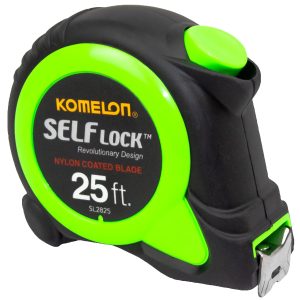
A tape measure is the most fundamental measuring tool in any workshop. It’s a go-to for quickly gauging lengths, widths, and heights. Modern tape measures are compact, durable, and come with handy features like locking mechanisms and dual measurement units (imperial and metric).
Key Benefits:
- Quick measurements for materials like wood, metal, and fabric.
- Convenient locking features to hold the tape in place.
- Compact design for easy storage and transport.
Whether you’re planning a woodworking project or setting up a workshop layout, a tape measure ensures accurate dimensions every time.
2. Calipers: Precision for Detailed Measurements
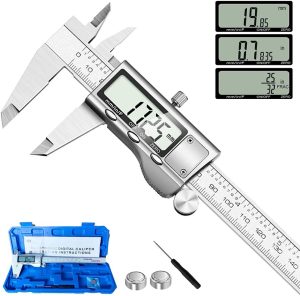
When you need to measure internal and external dimensions with high precision, calipers are indispensable. Available in vernier, dial, and digital forms, calipers can provide readings down to fractions of a millimeter.
Key Benefits:
- Perfect for measuring diameters, depths, and step distances.
- Digital calipers offer clear, easy-to-read displays.
- Ideal for metalworkers, machinists, and precision hobbyists.
Having calipers in your workshop ensures you can take precise measurements that are vital for parts that need to fit together seamlessly.
3. Micrometer: For Ultra-Fine Measurements
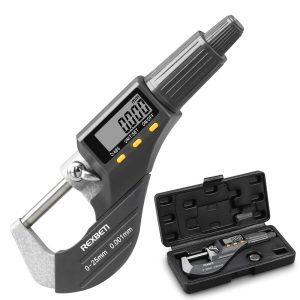
A micrometer is essential when precision is non-negotiable. These tools are designed to measure small distances or thicknesses with incredible accuracy, often down to one-thousandth of a millimeter.
Key Benefits:
- Exceptional precision, ideal for mechanical and machining work.
- Available in types for outside, inside, and depth measurements.
- Robust construction for long-lasting performance.
Use a micrometer when working with components where even the smallest variation can cause issues, such as in engines, gears, and fine woodworking.
4. Combination Square: Versatility at Its Best
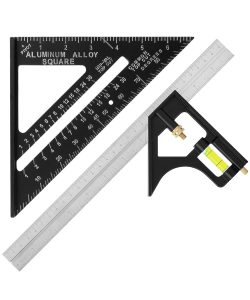
A combination square is one of the most versatile measuring tools you can own. This tool combines a ruler, a square, a level, and a scriber, making it indispensable for marking angles, checking flatness, and measuring depths.
Key Benefits:
- Can measure 90° and 45° angles with precision.
- Built-in level ensures surfaces are even.
- Compact and portable for quick on-site measurements.
Whether you’re cutting wood or metal, a combination square guarantees accurate and repeatable measurements, every time.
5. Spirit Level: Ensuring Straight Lines and Surfaces
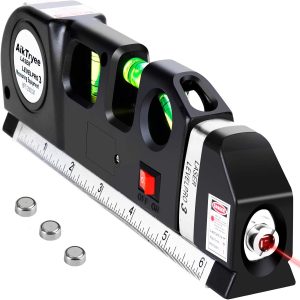
A spirit level (or bubble level) ensures that surfaces are perfectly horizontal or vertical. Its liquid-filled vials with an air bubble indicate when a surface is level, a crucial factor in construction and installations.
Key Benefits:
- Multiple vial options for checking both horizontal and vertical levels.
- Magnetic base versions allow hands-free operation on metal surfaces.
- Available in a variety of sizes to suit different tasks.
From hanging shelves to installing machinery, a spirit level ensures everything is perfectly aligned.
6. Sliding Bevel: Mastering Angles Beyond 90°
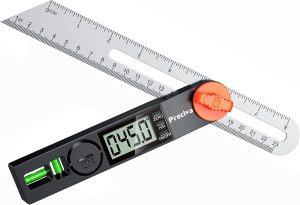
A sliding bevel (or bevel gauge) allows you to replicate or transfer angles precisely. Unlike fixed-angle tools, this adjustable device can lock in any angle, making it essential for custom cuts and complex joinery.
Key Benefits:
- Adjustable blade for transferring exact angles.
- Compact design for easy storage.
- Essential for bespoke carpentry and advanced woodworking.
With a sliding bevel in hand, complex angles become easy to measure and replicate.
7. Feeler Gauge: Measuring Gaps with Precision
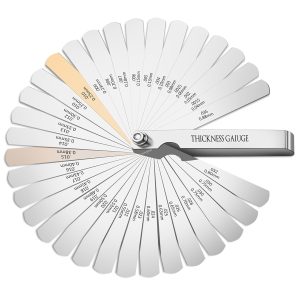
A feeler gauge is used to measure the gap or clearance between two surfaces. It’s composed of a set of thin blades of varying thicknesses, which can be inserted into gaps to determine precise spacing.
Key Benefits:
- Ideal for engine tuning, mechanical maintenance, and manufacturing.
- Compact and pocket-friendly design.
- Offers a range of thicknesses for versatile use.
In mechanical work, ensuring the right clearance is crucial for performance and longevity, and a feeler gauge makes this task simple.
Why You Need All Seven Tools
These seven essential measuring tools form the backbone of any workshop. Each tool plays a specific role:
- Tape measure for general measurements.
- Calipers for precision work.
- Micrometer for ultra-fine measurements.
- Combination square for angles and alignment.
- Spirit level for level and plumb lines.
- Sliding bevel for custom angle replication.
- Feeler gauge for checking gaps and clearances.
By equipping your workshop with these tools, you’re setting yourself up for success, accuracy, and professional-quality results.

